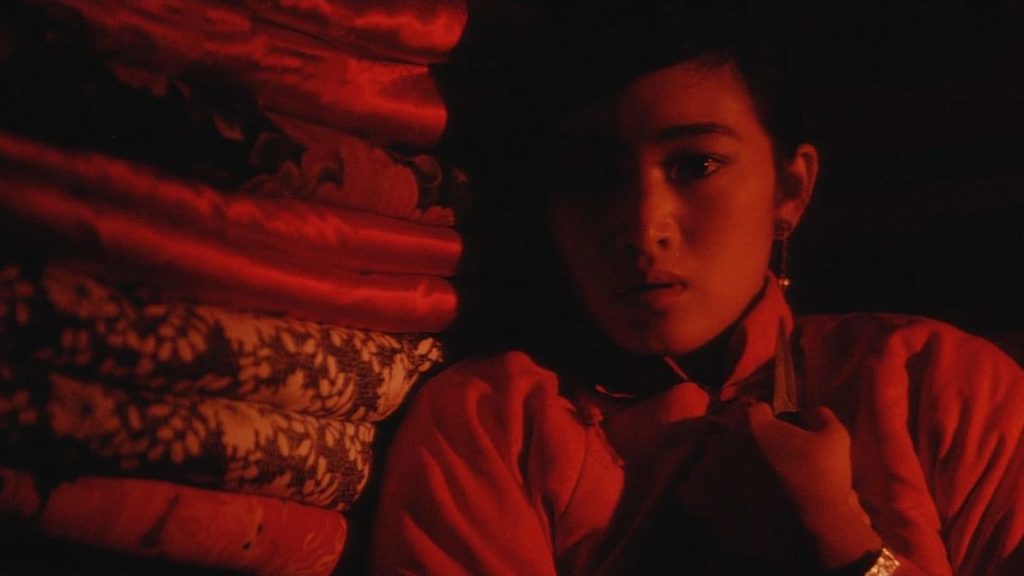Following the Cultural Revolution of Mao Zedong, a new era of graduates from the Beijing Film Academy helped to form the Fifth Generation of Chinese cinema. These bright young talents combined a meticulous approach to technique and elaborate mise-en-scene with thematic and political allegory that would have been unthinkable only a few years prior. The Fifth Generation brought with it the likes of Chen Kaige, Huang Jianxin, Tian Zhuangzhuang, and, perhaps most famously, Zhang Yimou.
Zhang is now better known as a box office hitmaker in China with an increasingly cozy relationship with the country’s government. But long before he was making works under the umbrella of the Communist Party, he was credited with being one of the most crucial filmmakers in helping Chinese cinema to break away from the stranglehold of propagandistic demands. With his 1988 directorial debut, he established his reputation as well as the most important collaboration of his storied career.
Based on parts of the novel of the same name by Nobel Prize winner Mo Yan, Red Sorghum takes place in a rural village in China’s eastern province of Shandong during the Second Sino-Japanese War. The narrator looks back on the lives of his grandparents: a poor girl named Jiu’er (Gong Li) married off to an old leper she has never met, and a worker (Jiang Wen) who carried her to her new life. After Jiu’er’s husband dies, she takes over his sorghum distillery (a kind of grass that can be fermented into a strong liquor), which she then turns into an egalitarian operation by encouraging her all-male employees to take pride in their creation.
Zhang and Gong Li began their professional and personal relationship during production, which inspired much controversy, given that Zhang was married at the time. Over the course of ten films, the pair explored themes of the oppression of women under communist rule. In Ju Dou, which was initially banned in China, Gong plays the wife of a cruel fabric dyer whose murderous plans with her lover have disastrous consequences. Raise the Red Lantern had Gong play the fourth wife of a wealthy man who is forced to compete with his other wives for respect. Red Sorghum feels more traditional by comparison. While it does feature a woman who gains independence through widowhood and has a child out of wedlock with a subordinate, it’s also a rousing endorsement of communal power over one big bad boss. Even their errors can be uplifting, such as a bizarre subplot where one character’s urinating into the wine vats makes the sorghum even tastier.

Fitting for its title, Red Sorghum is awash in a sea of scarlet. It practically bleeds from the screen: from the wine, the grassy fields, the setting sun. It’s the color of desire, of course, but also the shade of change and identity, as the wine becomes a symbol of success and solidarity for Jiu’er and her fellow workers. As shot by cinematographer Gu Changwei, who went on to films like Farewell My Concubine, red is as vibrant as it’s ever been onscreen. It only grows more intense in the second half, when the brutality of the Sino-Japanese War engulfs the village. The calmness and idyllic qualities of the story are abruptly interrupted by the realities of abject war crimes, and suddenly, red stops feeling like a welcome presence on and off-screen. Zhang’s love of the color would carry over to many other films in his canon, from Raise the Red Lantern to Hero.
As beautiful as red is in this film, it’s Gong Li whose presence proves to be the most enthralling. Her collaborations with Zhang excelled in exploring the ways that Chinese women of the past and present dragged themselves up from the gutter and in defiance of societal norms. As Jiu’er, Gong is elegant and underestimated, seemingly not a natural leader until she proves to her doubters her tenacity and ability to please the crowd. The story is never judgmental of Jiu’er in her decisions, which still feels dishearteningly progressive. She experiences unbearable tragedy but is never a sacrificial lamb herself.
Red Sorghum kicked off one of the greatest director-actor collaborations of the past 40 years, one that is often overlooked by Western critics. The confidence of this debut from both filmmaker and star demonstrated the bright futures ahead, but also proved to be the stepping stone to bigger and more ambitious things. Red Sorghum may feel somewhat old-fashioned compared to the thematic force of Ju Dou or the sheer opulence of House of Flying Daggers, yet it has lost none of its potency almost four decades since its release. Red has still never looked so beautiful as it does here.



